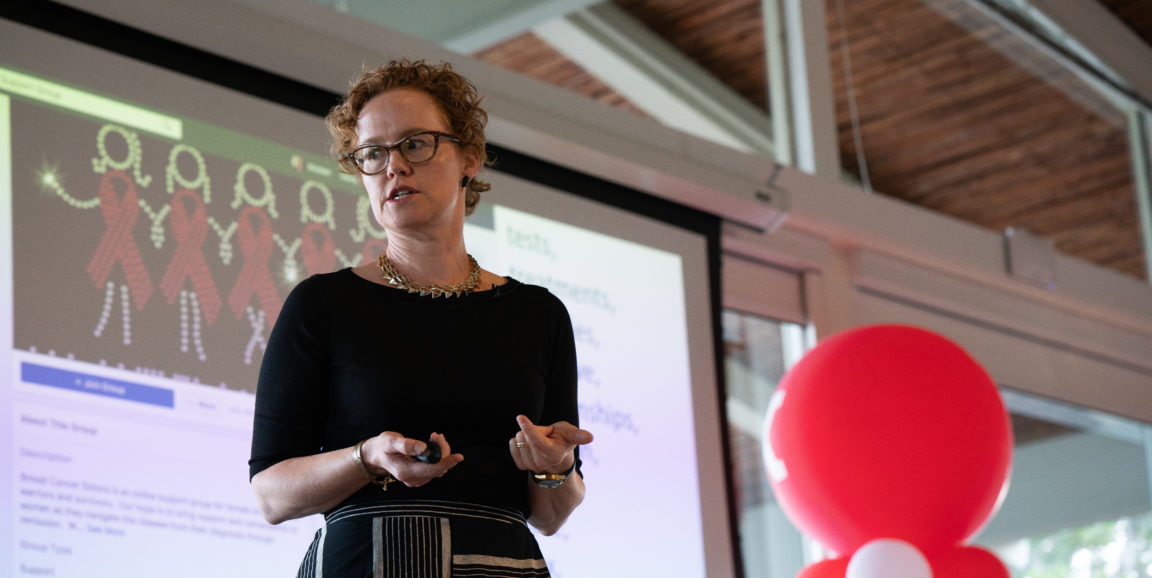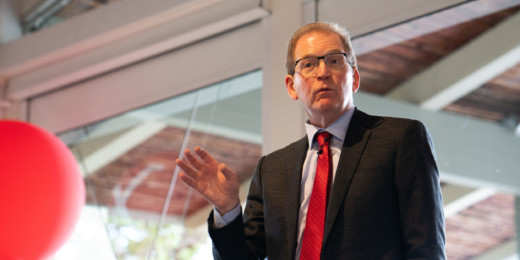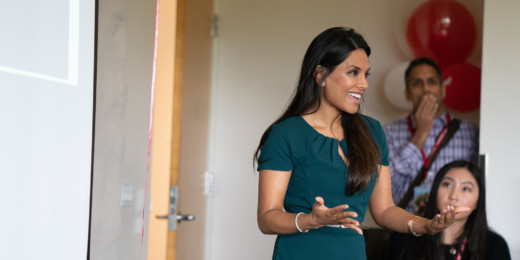For more than a decade, the internet has offered patients an invaluable venue for connecting, sharing information and personal stories, and creating virtual communities.
But now, in the era of fake news, data breaches and Cambridge Analytica, they must weigh the risks of disclosing private data with the benefits of the knowledge and comfort that can be found online.
"There was a challenge in the early days, in the golden age of blogging, convincing naysayers that connecting online is beneficial to health," Kirsten Ostherr, PhD, said Sunday morning at Stanford Medicine X | Ed. "We have a new challenge, which is managing the unintended consequences of connecting online."
Ostherr, a media scholar and digital health technology researcher at Rice University, described how health information can be vulnerable on the internet.
Facebook algorithms vacuum up health details about both users and non-users to package for advertisers, she said. The social media platform also can deduce information about a patient's life from what he or she volunteers on a support group's Facebook page: tests, treatments, surgeries, age.
These personal health and wellness factoids often don't meet the legal definition of medical data, Ostherr said. Therefore, the information isn't protected.
"It's not like Facebook is violating some law by collecting all of this stuff," Ostherr said. "They're not."
Such pitfalls have prompted some support groups and patients to reconsider what they post and where, with some considering moving to a different platform. That's not as easy as it sounds, said Leilani Graham, a Stanford Medicine X ePatient advisor, who spoke after Ostherr Sunday morning on a panel addressing health privacy online.
"These communities have already been so well-established," she said, "so it's very difficult to move 5,000 people in one Facebook group to an entirely different app."
Graham, who has a blog that describes her experience as a heart transplant recipient, said she'd noticed that some patients withhold details by design, and that she, too, has made conscious decisions about what to publish and what not to publish. "I never share my blood type. I never share my [medical record number]. But I will share the center that I'm treated at and my full name," she said, adding that she uses a blackout feature in Instagram stories to conceal potentially sensitive information.
Panel member Sylvie Dobrota, a Medicine X research associate, said her generation is accustomed to living life online, including tracking each others' geographic locations via app, and that potential problems rarely cross her mind. "It's so easy to trust people -- like Facebook or anybody else -- to be benevolent that you're not really thinking critically about what that trust means," she said.
Dobrota, who is also a cofounder of the Hearing Accessibility Project, said she wouldn't want to stop people from connecting and sharing their stories on the internet, but guidelines for what to share and not share when discussing health or illness on the internet would be helpful.
Kerri MacKay, who blogs about her experience with asthma and ADHD, agreed.
The need for validation and people who share that experience sometimes outweighs that desire for privacy, and that's a really big problem. It shows how much social support is necessary, but also that we need to educate patients more and more about how they can draw those lines for themselves.
Photo of Kirsten Ostherr by Justin Lai / Stanford Medicine X | ED






